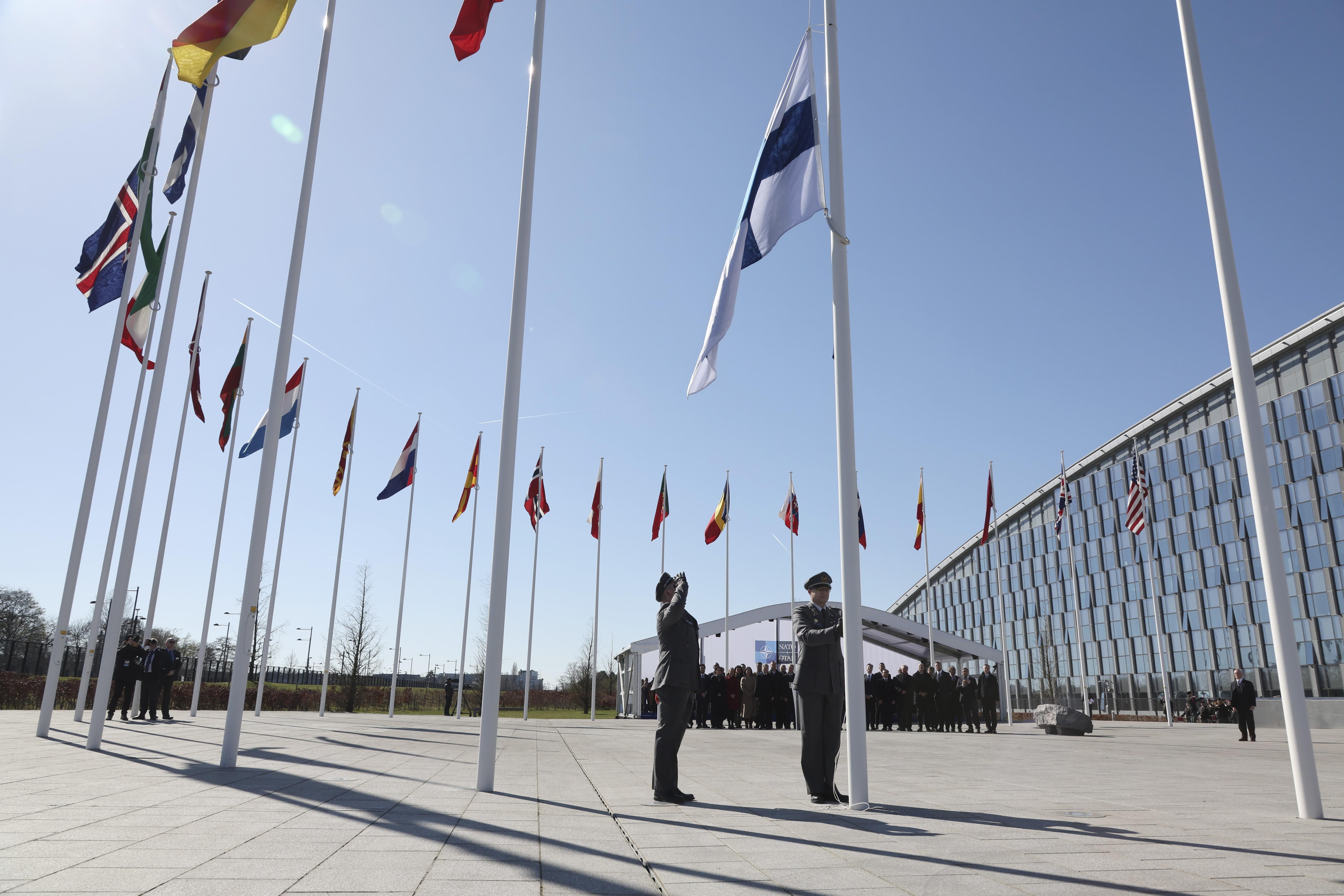 Military personnel raise the flag of Finland during a flag raising ceremony on the sidelines of a NATO foreign ministers meeting at NATO headquarters in Brussels on April 4, 2023. NATO's new member Finland will participate in the Western military alliance's nuclear planning and support operations, the Finnish defense ministry said on April 13, 2023. (PHOTO / AP)
Military personnel raise the flag of Finland during a flag raising ceremony on the sidelines of a NATO foreign ministers meeting at NATO headquarters in Brussels on April 4, 2023. NATO's new member Finland will participate in the Western military alliance's nuclear planning and support operations, the Finnish defense ministry said on April 13, 2023. (PHOTO / AP)
HELSINKI – NATO's new member Finland will participate in the Western military alliance's nuclear planning and support operations, the Finnish defense ministry said on Thursday, although it has decided not to allow any nuclear arms on its soil.
In a historic security policy U-turn after decades of military non-alignment, Finland became NATO's 31st member on April 4.
Among NATO members, only France has opted out from participating in the nuclear planning group, opting to reserve decision-making around its own nuclear weapons to itself
When joining, the Finnish government decided Finland would not permit the stationing of nuclear weapons on its territory but did not set other restrictions for the Nordic country's membership.
In practice, Finland will take part in the work of NATO's nuclear planning group, which reviews and sets the alliance's nuclear policy, and could join support functions for NATO nuclear operations outside its own territory, Director General for Defence Policy Janne Kuusela told Reuters.
ALSO READ: Finland to join NATO, Sweden still waiting
"Nuclear weapons have a very central role in the deterrence and defense built by NATO. We, too, will enjoy the protection from them and therefore it is a positive matter for Finland to participate in full in different ways and by no means shut itself out of it," Kuusela said.
Among NATO members, only France has opted out from participating in the nuclear planning group, opting to reserve decision-making around its own nuclear weapons to itself.
"These activities are led by the nuclear powers," Kuusela said, referring to the United States and Britain, which both have their own nuclear arsenal and who lead the work of NATO's nuclear planning group.


